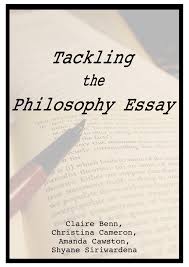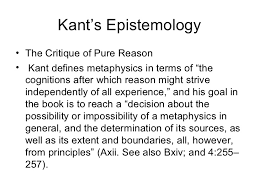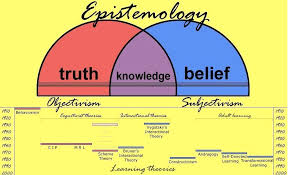
Human dignity
Order Instructions:
See the attached file
SAMPLE ANSWER
Introduction
It is agreeable that human dignity needs a new guarantee. This can only be found in a new political principle, in a new law on earth. This view emanates mainly from consideration of the past perspectives and how they have shaped the current world. In view of this, there is need to align the current government relations to the deliberations of ensuring a new guarantee of human dignity. This paper analyses the points related to this view, especially in line with anti-Semitism, imperialism and totalitarianism. There is also a deep analysis of why human dignity needs new guarantee. This is done in line with consideration of the adopted perspectives in the past and the new insights which can guarantee human dignity.
Human dignity needs a new guarantee
In the deliberations of human dignity, there is always involvement of human rights. In consideration of the past inclinations, there has been lack of orientation of human rights to human dignity. Human dignity in inviolable and must be respected at all costs. Without due respect being given to human dignity there can be no success in efforts of ensuring human rights in local and international relationships. It is on the basis of realization of the crucial role of human dignity that human rights are pegged on human dignity. Without aligning human rights to human dignity, there cannot be success in ensuring guarantee of human dignity through human rights.
The universal declaration Human Rights of 1948 can be said to align to the recognition of inherent human dignity and equal and inalienable rights of all members of the human family. The statement “members of the human family” is very much significant. This utterance is made in view of the past alienation of some groups of people in the efforts of articulating human rights. This deficit was more so in the informal efforts that were made in the past. It is on the basis of the exclusion of some people in the efforts of ensuring human dignity that the insight of ensuring a guarantee for human dignity is based, (Siegert & WardPp 2141). If human rights are extended in the best way only to some groups of people and the rest (even if the rest are minority) do not get the effects of human rights, then human dignity is not guaranteed. Analysis of the past exercises of powers by governments give insights in to the deficits that were there in terms of ensuring guarantee of human dignity. It is on those bases that efforts are made to ensure that human dignity is guaranteed especially in ensuring that human rights are universal not only in writings and utterances, but also in the real practice. Hence, the protection of human rights as an aspect of human dignity guarantee has become the jurisdiction of every government, (Tulli, pp 577) without efforts to ensure protection of human rights a government would not be trusted by the citizens and there would be no association f the government with the efforts of ensuring guarantee for human dignity.
Analysis of the past
Before the formal declarations of human rights in the efforts to ensure protection of human dignity, there were informal efforts that were made. An analysis of these efforts points to the realization that there were many gaps in which the human dignity was not respected. There have different efforts by governments to ensure that there is loyalty from the followers of the government and that the government assures the loyal followers the protection of their human dignity. However, different models of leadership adopted and the inner efforts display a lack of the right direction in the guarantee of human dignity to the citizens being led.
For instance, anti-Semitism, which here is not taken to mean hatred of Jews had its own loopholes when it comes to guarantee of human dignity. In the outer meaning which entails exclusion of some people who are noted as not being loyal to the stipulated cultures of the nation, there is already an implication of lowering human dignity. This view emanates from the fact that; all efforts should be made to ensure a guarantee of human dignity. When the effort done only orients to an exclusion of the people regarded as not being loyal such that they are punished, there is no implication in guaranteeing human dignity. Since human dignity is an inclusive aspect of human beings, it is essential that efforts are made to ensure that the guarantee encompasses everyone. Even in the different categories of people, efforts should be made to ensure a guarantee for every individual, (Tuckerman, P, Cain, P, Long, B, & Klarkowski, Pp 177). It is on the basis of this idea that there has been collaboration of nations in efforts to ensure articulation of human rights as an aspect of human dignity.
There is need for efforts to be made to ensure that the protection of human dignity is not exclusive for some people. It cannot be pessimistically said that there have not been efforts made to ensure that there is an extension of the guarantee of human dignity in the deliberations of exercising human rights. The empowering of non elected judges to deal with the issues of human rights presents a country with a noble way of ensuring that human dignity is guaranteed in the efforts of a nation deliberation of human rights (Ahamed pp36). It is noted that such crucial efforts were not adopted in the past eras due to the failure to realize the need to guarantee human dignity. In the wake of enlightenment of the human family, there should be no glimpse of steps back towards such orientation. More efforts should be made to ensure that more steps are taken in empowering the unelected members in the nation to see that there is protection of the human rights in their view as an aspect of human dignity.
When excessive power is endowed to elected members of our societies such that the unelected members have no say, then the steps towards demolition of human dignity instead of its guarantee are made. This view emanates from the realization that; it is the adoption of such aspects that made the human family dwell in the dark times of little human dignity and lack of its guarantee, for instance during the times of imperialism. In the realization of the importance of guaranteeing human dignity, human rights is placed way above the politics of a country. When such efforts are made, it becomes easier for a country to guarantee human dignity. On this note, political right is just one of the rights while the whole human rights aspect encompasses many other rights. It would therefore not be viable to give more priority to politics than to the human rights bill in a country, or any other aspect pertaining human rights in efforts to ensure a guarantee of human dignity, (Ahamed pp36).
The exclusion of some citizens in the exercise of human rights such that it is clear their dignity is not guaranteed can be likened to the anti-Semitism which was experienced by the Jews in the past, (Klug pp 443) on these bases, it cannot be said that anti-Semitism is long time over. Again, on the same bases it cannot be said that this is a wrong analogy. This is because; the Jews are human beings, whom it was realized that it was wrong to exclude them in the exercise of human rights. This statement is on the basis of human dignity as a universal factor. On the same note, there should be no exclusion of any kind of human being in the deliberations of human rights. If such happens under the watch of any given government, then such aspect is not different from the long time exercised anti-Semitism.
Tackling the barriers
There should be efforts to ensure that a government tackles the barriers to provision of human rights and guarantee of human dignity. To ensure success in such efforts, it is crucial for a government to ensure that all facets of human rights have been given priority. The government ought to ensure that the information that is given from governmental institutions as well as other institutions is based on truth, (Cameron & Godwin pp 203). This view follows the realization of false information given by institutions such as hospitals, and which can greatly undermine the efforts of ensuring human dignity is guaranteed. For instance, due to one’s own inclination, there could be giving out of false information so as to undermine the dignity of the people who have a different lifestyle to that which one has adopted. In the wake of deliberate efforts of ensuring a guarantee of human dignity, there should be much sensitization to ensure that every one puts efforts of ensuring a guarantee of the human dignity. On this note, the effort should not be left to the few elected people. Every person’s contribution towards this effort is of great importance because; just as the human dignity is an inclusive aspect, the efforts of realizing its guarantee are also universal and call for efforts of every human member. There is need for governments to legislate on civil laws that ensure protection of citizens against lies and the implications of the same, (Boreham Pp 3) such efforts would go a long way in ensuring that there is a guarantee of human dignity.
The analysis of imperialism in relation to the need for a new guarantee of human dignity may seem like a farfetched idea, but is an ideal aspect in as far as the efforts of ensuring new guarantee for human dignity are concerned. The efforts of ensuring guarantee of human dignity must be pegged on respect for the right of every human being regardless of their background. If the efforts orient to a particular group of people, then the ailments of imperialism and totalitarianism will not escape the current generation and generations to come. This view emanates from the realization that; if the rights of human beings are not made entirely universal, there cannot be a realization of the guarantee to human dignity, (Dragojlovic, Pp 59). The same effects associated with past ill forms of governance such as imperialism and totalitarianism will still manifest themselves only in different forms. As long as it is human beings ailed by such effects, there cannot be claims of achievement of a guarantee for human dignity. Without a universal approach, and taking the direction of articulating the efforts in new political principles and in new law on earth, there would be no fruits realized.
If the same aspects of imperialism are still exercised in government deliberations, the guarantee of human dignity will not be realized. When there is exercise of power without respect of the indigenous people, then it is only time that withholds the destruction of the dignity of the people, such as destruction of masses of people, (Lawson, pp 19). This idea is pegged on the realization that; just as imperialism led to loss of life in the long run in the past, if today there is exercise of the same aspects by government, there is bound to be equal or more loss. When there is loss of life due to the failure to articulate human rights in a manner that presents guarantee of human rights, then the extremes have been reached. This kind of destruction cannot be said to belong to the past, as long as enough efforts are not being made to ensure that there is a guarantee of human dignity by all means. Legislation by governments should ensure that no loopholes can allow penetration of such low levels o human dignity, (Boreham Pp 3).
In the efforts to ensure a guarantee of human dignity, there should be a realization of the differences amongst people which must also not be used to segregate people such that some have more dignity bestowed while other do not. This can be likened to the views that were made over Jews that they refused to be ‘men’ (Staudenmaier, pp163). If there is adoption of such sentiments in government, expected to ensure guarantee of the dignity of people, there would be no fruits borne. The legislation done will orient towards the favored group of people and evil will begin to brew. With time, even the little efforts made in ensuring human rights will be washed away by the gaps allowed to dim those efforts. These kinds of deliberations are associated with stereotyping which is a great evil and set back in the efforts of ensuring human rights as well as a guarantee of human dignity.
Guarantee of human dignity must be precedent by efforts of ensuring restriction of power. The analysis of past leadership ailments that saw inclinations of little or no human dignity are associated with empowering the leaders in an unlimited manner. When the leaders are endowed with power that is not limited such that they control everything without question, then there is bound to be loopholes and human dignity for every one cannot be guaranteed, (Hoover pp 220). For instance, in the exercise of totalitarianism, there was demand for unquestioning obedience from the members. There was demand for allegiance to the leader even if the leader is unseen and unknown. This may sound very much like a thing of the past, but a closer look in the current dealings can reflect some elements of totalitarianism. The issue of unquestionable allegiance is a great barrier to guarantee of human dignity. That is why there is and there should be efforts of separating powers in any given government such that one wing is able to correct the other in efforts of ensuring human dignity is guaranteed and especially in stipulating and exercising human rights
In those efforts, it would not be viable to take that which belonged to the past and call it our heritage without deliberating on the consequences. Even in deliberating on the past, caution must be taken because; different times call for different efforts. What might have worked in the past may not work in the modern times. It is viable to learn from the past, but it would be a great mistake to lift up ideas from the past and apply them in current situations without testing the relevance. In the efforts to ensure that we learn from the past and apply the lessons in the present with relevance, there must also be efforts to rectify the mistakes. It is not viable to assume that the bad things of the past will be buried in oblivion as time goes by. In order to live with clear consciences, it would be crucial to ensure that we put efforts to bury the past. This is achievable by ensuring that all elements that are negative have been avoided in the current deliberations to ensure a guarantee of human dignity. It is crucial to note that; the efforts must be inclusive so as to ensure success in guaranteeing human dignity.
Bibliography
Ahamed, F 2013, ‘Does Australia need a constitutional Bill of Rights?’, Middle East Journal of Business, vol. 8, no. 2, pp. 35-38.
Boreham, K 2014, ‘The Right To Truth: The Freedom To Speak, To Know And To Be Protected From Lies’, Legaldate, vol. 26, no. 3, pp. 2-4.
Cameron, S, & Godwin, J 2014, ‘Barriers to Legal and Human Rights in Australia in the Era of HIV Treatment as Prevention’, AIDS Education & Prevention, vol. 26, no. 3, pp. 202-213. Available from: 10.1521/aeap.2014.26.3.202. [3 June 2015].
Dragojlovic, A 2015, ‘Haunted by ‘Miscegenation’: Gender, the White Australia Policy and the Construction of Indisch Family Narratives’, Journal of Intercultural Studies, vol. 36, no. 1, pp. 54-70. Available from: 10.1080/07256868.2014.990363. [3 June 2015].
Hoover, J 2013, ‘Rereading the Universal Declaration of Human Rights: Plurality and Contestation, Not Consensus’, Journal of Human Rights, vol. 12, no. 2, pp. 217-241. Available from: 10.1080/14754835.2013.784663. [3 June 2015].
Klug, B 2014, ‘The limits of analogy: comparing Islamophobia and antisemitism’, Patterns of Prejudice, vol. 48, no. 5, pp. 442-459. Available from: 10.1080/0031322X.2014.964498. [3 June 2015].
Lawson, T 2014, ‘A British Genocide in Tasmania’, History Today, vol. 64, no. 7, pp. 18-20.
SIEGERT, RJ, & WARD, T 2010, ‘Dignity, rights and capabilities in clinical rehabilitation’, Disability & Rehabilitation, vol. 32, no. 25, pp. 2138-2146. Available from: 10.3109/09638288.2010.483037. [3 June 2015].
Staudenmaier, P 2012, ‘Hannah Arendt’s analysis of antisemitism in The Origins of Totalitarianism : a critical appraisal’, Patterns of Prejudice, vol. 46, no. 2, pp. 154-179. Available from: 10.1080/0031322X.2012.672224. [3 June 2015].
Tuckerman, P, Cain, P, Long, B, & Klarkowski, J 2012, ‘An exploration of trends in open employment in Australia since 1986’, Journal of Vocational Rehabilitation, vol. 37, no. 3, pp. 173-183.
Tulli, U 2012, ‘‘Whose rights are human rights?’ The ambiguous emergence of human rights and the demise of Kissingerism’, Cold War History, vol. 12, no. 4, pp. 573-593. Available from: 10.1080/14682745.2012.654491. [3 June 2015].
We can write this or a similar paper for you! Simply fill the order form!












